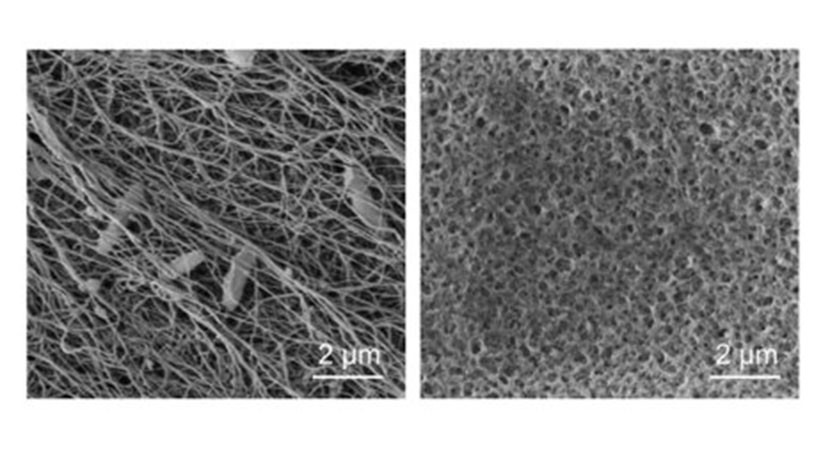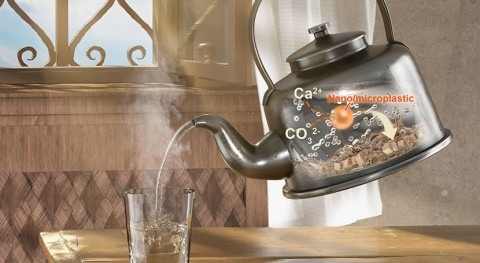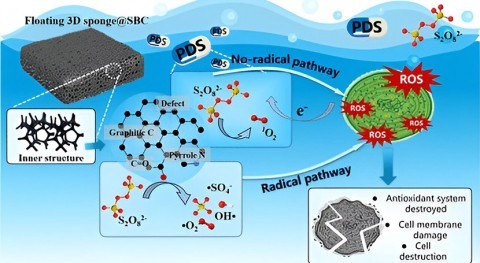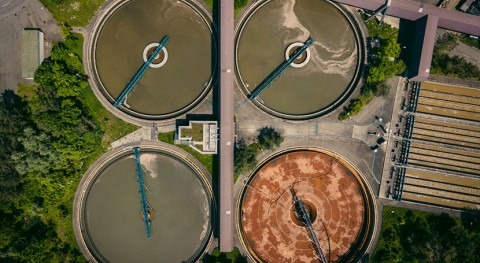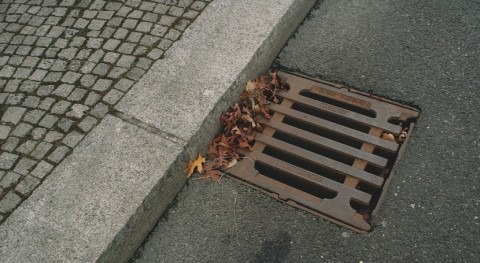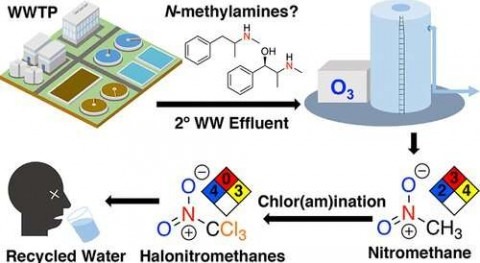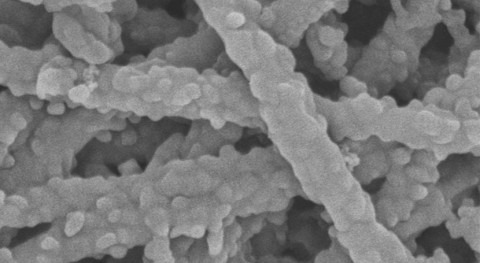Commercially available ultrafiltration membranes that purify water are expensive and get clogged easily by particles and microorganisms. Recently, living filtration membranes were reported as an alternative sieving material. Grown from kombucha cultures, the filters are dense, stacked sheets of bacterial cellulose. Now, researchers reporting in ACS ES&T Water show that these living membranes are more resistant to clogging and biofouling, making them more efficient and less expensive to use than conventional ones.
Decontaminating water so that it's safe to drink requires materials that remove impurities and disease-causing pathogens, including bacteria, parasites and viruses. Polymer-based filters with tiny holes can fulfill this need, but their lifetime is limited because their pores get plugged easily. Some contaminant microorganisms speed up this process by producing sticky substances that create a glue-like biofilm, coating the inside of the membranes and blocking water flow.
In a recent study, Katherine Zodrow and colleagues reported on living membranes made of a permeable bacterial cellulose film that they grew from a symbiotic culture of bacteria and yeast (SCOBY), which is used to ferment tea into the popular drink kombucha. These membranes can be tuned to filter different sizes of particles, and because they're alive, can heal themselves. Some of the microbes found in SCOBY belong to a family known to produce acetic acid, which can kill bacteria, including those that secrete biofilms. So, another team led by Zodrow wanted to see if living filtration membranes could resist fouling and last longer than commercial polymer membranes.
The researchers cultivated a kombucha SCOBY in a solution of sugar, black tea, distilled white vinegar and water. A thin permeable membrane of fungi and Acetobacter bacteria grew where the culture came into contact with air. Then, the team filtered water from two reservoirs and a river in Montana with both a living membrane and a commercial membrane made from two cellulose esters. While both materials clogged and filtered more slowly over time, the SCOBY-sourced membrane resisted fouling better and maintained faster filtering, especially with the dirtier and microorganism-laden water samples. Although a biofilm eventually formed in the living membrane, too, there were fewer microorganisms within that film. According to the researchers, this result could mean that the acetic acid-producing bacteria embedded within the material discouraged the growth of bacteria that contribute to biofilms. Based on these results, the team says that living membranes could be an inexpensive, biodegradable and effective way to treat water.


